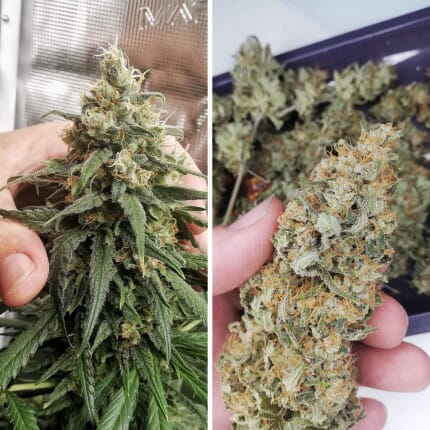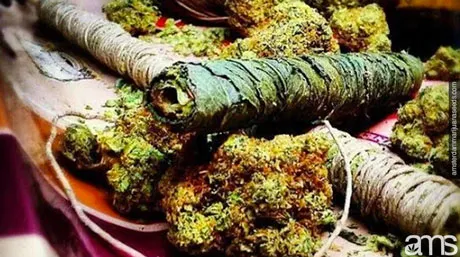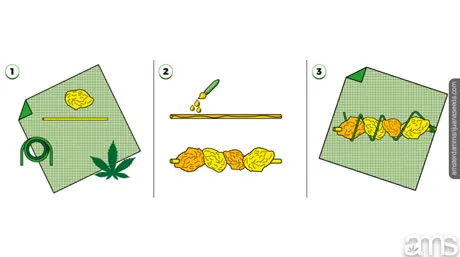General topics
Cannabis Legalization in Europe
Published
6 months agoon
By
admin
#html-body [data-pb-style=X3PWLT8]{justify-content:flex-start;display:flex;flex-direction:column;background-position:left top;background-size:cover;background-repeat:no-repeat;background-attachment:scroll}#html-body [data-pb-style=LWV152M]{border-style:none}#html-body [data-pb-style=ADBS5LD],#html-body [data-pb-style=B0394R1]{max-width:100%;height:auto}@media only screen and (max-width: 768px) { #html-body [data-pb-style=LWV152M]{border-style:none} }
Cannabis Legalization in Europe
The increase of sales and free consumption of marijuana on the streets of Europe is becoming more and more evident. In countries like Spain, the consumption of marijuana is no longer considered a taboo by the population. In this European country, there are no regulations prohibiting the cultivation of marijuana, and there are no minimum or maximum limits for the possession of personal cannabis cultivation in a home or private property.
The expansion of cannabis cultivation, marketing and distribution internationally is driven by a variety of motivations. Each nation has its own regulations, which vary according to the intent of the user and other factors such as medical, scientific or recreational use.
In the European Union, there is no uniform regulation of cannabis use. Over the past two decades, there has been a trend to reduce or eliminate prison sentences for possession of small amounts of this substance. In addition to Germany, several other countries have introduced, or are considering introducing, new regulations allowing the recreational use of cannabis.
Frank Perit, a regular cannabis user, welcomes initiatives in Europe that allow the free consumption of cannabis in public spaces. Compared to Latin American countries such as Colombia, where the consumption of cannabis in public spaces can be complicated by the persistence of taboos and legal restrictions, “there is still a taboo on this plant, not to mention that the country is a producer of it on a medical level but not on a recreational level, so to see that Europe does not have this issue is wonderful”, Perit explained. He appreciates the European perspective.


Germany one step closer to legalization
Germany is taking a step toward legalization. A few months ago, the country prepared a law to legalize cannabis, at least partially. Under the law, which will take effect in 2021, adults will be able to possess up to 7 grams of cannabis and grow up to four plants in their homes. The bill to decriminalize cannabis in Germany is expected to take effect no later than January 1, 2024, which is a significant step forward.
Several European countries have adopted more flexible measures, while others are considering amending their regulations to allow consumption in designated public places. Over the past two decades, there has been a marked trend toward reducing or eliminating prison sentences for possession of small amounts of prohibited substances. These countries hope that by adopting these new regulations, the illegality and chaos associated with prohibition will be reduced.
Frank Perit, who has traveled throughout the European continent, believes these measures are a good option. In addition, he highlights the quality of products grown in European countries, such as those of the Amsterdam Marijuana Seeds brand. “They are very reliable, they breed excellent plants like indica and sativa, they create excellent produce and they breed them here in Europe, why not allow more expansion of the product without restrictions, that would seem excellent to me. Frank concludes that Europe is on the right track to expand access to quality cannabis products.
Current state of cannabis in Europe
Several European countries now allow both recreational and medical use of marijuana, setting an encouraging precedent for their neighbors. The Netherlands is known for its liberal approach to cannabis and other drugs. The possession and use of up to five grams of marijuana has been allowed since 1976, and its sale in licensed “coffee shops” is tolerated. However, it is not allowed to grow or sell large quantities. In addition, in 2003 they became the first EU member to allow the medicinal use of cannabis.
Malta has decriminalized the possession of up to seven grams of cannabis and the cultivation of up to four plants by the end of 2021. It also plans to establish licensed Cannabis Social Clubs for the formation of cultivation cooperatives. However, consumption in public places and by minors remains illegal.
Luxembourg has allowed the cultivation and consumption of small amounts of cannabis in private, since June, although carrying more than three grams in public is punishable and considered drug trafficking.
The Czech Republic has had a flexible approach to cannabis since 2010, with possession punishable by law but no legal measures for small amounts. In April 2023, the Czech government plans to legalize cannabis and create cannabis clubs, as well as allow sales in pharmacies.
Switzerland prohibits cannabis, but allows cannabis products with less than one percent THC. It also allows the cultivation of low-THC cannabis strains. As of May 2021, consumers will be able to legally purchase cannabis products in scientific pilot programs under strict conditions in order to obtain a sound scientific basis on the subject.
Marijuana is experiencing a global shift in perception that demonstrates its potential for both health and social benefits. The negative stigma that has persisted over the years is being left behind, and this is producing positive results both economically and clinically.
You may like
-


What To Call The Illegal Marijuana Market
-


Pakistan Makes Positive Move On Cannabis
-


The Dangers and Effects of THC Vape in UK
-


How to Buy or Sell a Cannabis Business: The Webinar Replay
-


Alabama Senator Calls State Medical Cannabis Commission A ‘Money Pit’ Amid Ongoing Litigation
-


Is Thailand about to Change Their Cannabis Laws Yet Again?
General topics
A Happy Hippie’s Journey of Love, Cannabis, and Self-Discovery
Published
5 days agoon
May 3, 2024By
admin
Once upon a time in the enchanting Bieszczady Mountains of Poland, nestled among the breathtaking landscapes, a happy hippie found solace and joy at a vibrant rainbow people gathering. Dancing to the rhythm of life and embracing the mystical aura of the full moon, the air was filled with laughter, love, and the sweet aroma of marijuana. As the flames flickered and the smoke swirled around the mesmerizing fireplace, the happy hippie couldn’t help but feel a deep connection to nature and a sense of unity with fellow free spirits.
Having studied anthropology at the prestigious Oxford University, the happy hippie had developed a profound understanding of the cultural significance of plants like marijuana and their role in human rituals and traditions. For centuries, cannabis had been used by various cultures worldwide for spiritual, medicinal, and recreational purposes. It was a symbol of peace, relaxation, and a gateway to self-discovery.

As the happy hippie immersed themselves in the joyful ambiance of the rainbow gathering, they couldn’t help but reflect on the wisdom passed down through generations regarding the responsible use of marijuana. They understood the importance of education, awareness, and respect for the plant and its potential effects. It was a harmonious balance between indulging in the euphoric bliss of cannabis and honoring its sacred nature.
In this vibrant atmosphere of love and acceptance, the happy hippie felt inspired to share their knowledge and experiences with others. Their mission was to spread positivity, promote responsible cannabis use, and debunk the misconceptions surrounding it. Through their words, they aimed to empower individuals to make informed choices and embrace the holistic benefits of marijuana.

With every dance move and every puff of the joint, the happy hippie delved deeper into the profound connection between nature, spirituality, and cannabis. They reveled in the healing properties of the plant, which had been used to alleviate physical and emotional discomfort for centuries. From relieving pain to reducing anxiety, marijuana had the power to enhance one’s well-being and bring moments of pure bliss.
As the full moon illuminated the gathering, the happy hippie felt a surge of creative energy. They knew that their words could ignite a spark of curiosity and inspire others to explore the world of marijuana with an open mind and a responsible approach. They envisioned a society where cannabis was embraced not only for its recreational potential but also for its therapeutic properties and contribution to personal growth.
With the fire crackling and the rhythmic beats echoing through the mountains, the happy hippie felt a deep sense of gratitude for the magical moments experienced during this vibrant gathering. They realized that the true essence of being a happy hippie was not just about indulging in the pleasures of life but also about spreading love, acceptance, and knowledge.

And so, as the night wore on and the embers glowed, the happy hippie continued their journey, carrying the spirit of the rainbow gathering with them. They knew that their purpose in life was to inspire, educate, and create a positive impact. With the Bieszczady Mountains as their backdrop and the wisdom of the rainbow people in their heart, the happy hippie embraced the journey ahead, ready to share the joy of marijuana and the beauty of a harmonious existence.
As the full moon set behind the mountains, the happy hippie bid farewell to the rainbow gathering, knowing that the memories and connections made would forever be cherished. With a renewed sense of purpose, they embarked on their next adventure, eager to spread happiness and enlightenment wherever they went.

For the happy hippie, marijuana was not just a plant; it was a symbol of freedom, unity, and a gateway to a higher consciousness. And as they continued dancing to the rhythm of life, the sweet scent of marijuana trailing behind, the happy hippie radiated joy and positivity, leaving a trail of inspiration in their wake.
Remember, dear reader, to embrace the happiness within, to dance to the beat of your own drum, and to find moments of serenity in the simplest of pleasures. May the spirit of the happy hippie guide you on your own journey of self-discovery, and may the sweet aroma of marijuana always remind you of the beauty and magic that surrounds us.
With love and gratitude from the Bieszczady Mountains, The Happy Hippie

General topics
Thai Stick Weed: Exploring Exotic Cannabis Delights!
Published
3 weeks agoon
April 17, 2024By
admin
Table of Contents
What is a thai stick?
Thai Sticks are legendary cannabis products that originate from the Hill Tribes of Northeast Thailand. The traditional Thai Stick is crafted with a potent strain of cannabis called Asobinaka. The construction process involves impaling cannabis buds on a bamboo stick, then layering them with hash oil and wrapping them in cannabis leaves. This produces a uniquely concentrated form of cannabis, offering users a truly potent smoking experience.
Thai weed going global!
The popularity of Thai Sticks in the United States emerged during the Vietnam War, as soldiers discovered these potent cannabis products during their downtime. Upon returning home, the demand for Thai Sticks skyrocketed, resulting in thousands of kilos of weed and hash being smuggled into the U.S. However, as the supply of the key ingredient, the Asobinaka strain, dwindled, so did the demand for Thai Sticks. Today, the legacy of Thai Sticks continues, particularly in cannabis-friendly locations like Amsterdam. Adventurous individuals can even try crafting their own Thai Stick, Just don’t forget to take a picture and post it on Instagram, tag us so we can all see the result and enjoy the beauty.
What are cannabis cigars?
A Cannabis Cigar, also known as a Cannagar, is an enhanced smoking experience that utilizes hemp wick in place of tobacco. This natural and eco-friendly alternative is growing in popularity as more people seek healthier and more sustainable ways to consume cannabis. Essentially, a Cannabis Cigar dipped in hash oil is a contemporary interpretation of a Thai Stick, minus the bamboo skewer.

How to make thai sticks?
Creating your own Thai Stick requires certain materials including whole weed buds, cured cannabis leaves, bamboo skewers, hash oil, hemp wick, and parchment paper. After securing these items, you can start by coating your bamboo stick in hash oil to make the buds stick to it. Next, you’ll skewer your buds onto the stick and wrap them tightly with hemp wick for a uniform burn. Afterward, wrap the stick in parchment paper and freeze it for 24-48 hours. When it’s ready, carefully unwrap it, prepare your leaves, coat the buds with hash oil, and then wrap them with the leaves. The final steps involve wrapping the stick in parchment paper again and applying mild heat to seal everything together, and then wrapping the Thai Stick in hemp cord and curing it.
Hash oil
This is the main ingredient; you can make it yourself! Another process you must follow involves dissolving the weed in a solvent and filtering it.
We will add a link to a “How To” soon, so we can guide you through this step by step. Caution is advised due to the flammability of the solvent. It would be best if you didn’t burn anything but a blunt 😉
With a bit of luck and the right connections, you might be able to purchase it.

How to put your thai stick blunt together
You will begin to construct your Thai Stick following the procedure in the images below:

- to start, you will need to gather all of your materials.
- Next, you must coat your bamboo stick in hash oil. This will allow the bud to stick to the skewer while you finish the process.
- You will then skewer your buds on the Stick, being careful, and leave 1 cm at each end of the skewer. Being careful not to break off any buds, tie your hemp cord to one end of the Stick and start to shape them evenly while wrapping them tightly – this produces an even burn throughout the Thai Stick.
- Wrap the Stick in your parchment paper and put it in the freezer for 24-48 hours. Some people will choose to leave it for an extra day, but it should not stay for more than 3 days.
- Take the skewered buds from the freezer and carefully unwrap the parchment. Remove the string at this point – taking extra caution not to break any off the Stick.
– Once the string is off, prepare your prepared leaves.
– You will want to prepare your leaves by washing them and letting them dry ahead of time. - Now, you want to begin wrapping the Stick with your fresh cannabis leaves.
– Coat the buds with hash oil.
– Carefully wrap the buds with the cannabis leaves.
– You will want to do this three times, so your Stick is wrapped up in three layers of leaves. - Wrapping the Stick in parchment paper again and heat it lightly in a pan or hot plate. This will cause the hash oil to melt and seal everything together. Be Careful! DO NOT BURN IT!
- Remove the paper and gently wrap the Thai Stick in the cord again.
- Wrap it in the paper again in preparation for curing.
How to cure your thai stick
Thai Sticks can be cured using two methods – an earth-based method or a modern method.
- The earth-based method involves burying your Thai Sticks in a plastic bag in the earth for several weeks.
- Alternatively, the modern method requires placing your Thai Sticks in a plastic bag and refrigerating it for 3-4 days.
Each method has its own advantages and potential drawbacks, such as the possibility of mold growth or the required waiting period.

Why would you want to do this? There are a couple of reasons:
Firstly, due to a multitude of factors associated with the earth-based method (plant material, confinement in a non-breathable bag, temperature variations, etc.), your Thai Stick is at risk of mold development. Considering the investment of time, money, and effort that has gone into this project, the last thing you would want is for it to be compromised by mold.
Secondly, the question of patience comes into play – would you prefer to wait several weeks to enjoy your Thai Stick blunt, when you could potentially have it ready in merely 3-4 days with the modern curing process?
Smoking your thai stick
Smoking a Thai Stick is a straightforward process. You can smoke it in a pipe, or bong, or roll it into a joint. The key is to enjoy the experience, taking note of the powerful effects it can have. Thai Sticks are known for their slow burn and long-lasting effects, often burning for up to six hours. It’s important to smoke responsibly, ensuring that you’re in a safe, relaxed environment to fully enjoy the experience.
Thai sticks in a pipe
Thoroughly clean your pipe before packing Thai Sticks into the bowl. Pack Thai Stick into the bowl and light it like any other cannabis product. Enjoy your Thai Stick!
Thai sticks in a bong
Thai Stick is perfect for smoking in a bong! The process is pretty simple, Fill your bong with water and Thai Stick. Light it and enjoy!
Thai stick in a joint
Thai Stick is perfect for smoking in a joint! Roll up the Thai Stick in some rolling paper and enjoy. No need to overthink it!

Regardless of how you choose to smoke it
It is important to take your time and enjoy it. It can be a heavy hit, so be careful and ensure you are in a safe and relaxed environment. We have seen too many tourists in our beloved Dam taking a good thug and getting smoked with the high and all the madness around them.
We recommend that you find a comfortable spot, a relaxed area with chill surroundings, sit back, light it up, and enjoy!

Thai sticks burn longer than normal joints.
It can burn up to 6 hours on average. You will want to remove the skewer from the center of your Stick. This will leave a hollow tube in the middle of the Stick, allowing good airflow and a path for the smoke to travel down. Thai Sticks burn slowly. Please make sure you enjoy it responsibly. You will not smoke the whole thing. It’s okay to rest but put the Stick in an ashtray. We do not want you to fall asleep with a lit one in your hand.

Frequently asked questions
How much do Thai sticks cost?
The price of Thai Sticks is contingent on the quantity and quality of the cannabis used in its production. Each Thai Stick contains approximately four to ten grams of cannabis. Given the current market rate of around $20 per gram, this situates the price range for a single Thai Stick between $75 to $200. A high-quality, premium strain of cannabis will elevate the price, whereas lower-grade cannabis will decrease it.
Are thai sticks still around?
Indeed, Thai Sticks continue to be available and have experienced a resurgence in popularity. Originally, Thai Sticks enjoyed a period of high demand but fell out of favor towards the end of the 1980s. However, in recent years, due to the progressive legalization of cannabis worldwide, Thai Sticks have regained prominence in the cannabis market.
How was a thai stick made?
The creation of a Thai Stick involves a meticulous process. It begins with skewering cannabis buds onto a stick, followed by compressing them firmly against it. Subsequently, the skewer, now laden with cannabis, is wrapped in leaves and then set to cure. The curing process typically involves refrigeration for a period of 3-4 days. After curing, the Thai Stick is ready for consumption.
How long does it take to make a thai stick?
The process of creating a Thai Stick, excluding the time for cannabis cultivation, traditionally takes approximately two weeks from start to finish. This includes the preparation, assembly, and curing stages.
Is thai stick a strain?
While there is a cannabis strain known as “Thai Stick” or “Thai Sticks,” it should be clarified that this is distinct from the original strain used in traditional Thai Sticks. The authentic Thai Stick was made using the Asobinaka strain, which is now extinct.
How old are thai sticks?
Thai Sticks are a type of cannabis “cigar” originating from Thailand. Unfortunately, due to the clandestine nature of their historical usage, precise data regarding their age is elusive. However, the intriguing history of Thai Sticks continues to be a subject of interest, particularly as cannabis gains more widespread acceptance.
Does thai stick get you high?
To answer this question, it’s important to distinguish between the Thai Stick strain and the Thai Stick product. The Thai Stick strain, with a THC content of around 15-20%, is potent enough to induce a substantial-high. The Thai Stick product, also referred to as a “Cannagar,” is a multi-layered, oil-infused cannabis “cigar” that delivers a profoundly intense high when smoked.
Where can i buy thai sticks?
Thai Sticks can generally be located at cannabis dispensaries. In Amsterdam, reputable establishments such as Coffeeshop De Kade and Cannacenter Best Friends are known to carry them occasionally. Being specialty items, the quality of Thai Sticks can differ substantially, which is why it’s suggested to consult customer reviews prior to committing to a purchase. It’s crucial to ensure that the Thai Stick you procure is composed of 100% Sativa strain. Although it might require some effort to find a superior-quality Thai Stick, the unique and satisfying smoking experience it offers makes the quest entirely worthwhile.
What is the difference between a thai stick and a cannabis cigar?
The primary distinction between a Thai Stick and a Cannabis Cigar pertains to the time and method of their construction. A Cannabis Cigar is essentially a joint that uses cannabis leaves in place of traditional rolling paper. Thai Sticks, on the other hand, involves skewering and compressing cannabis buds onto bamboo sticks, which are then bound by hemp string and dipped in oil.
Are thai sticks made from an indica or sativa strain?
Historically, Thai Sticks have been produced exclusively using pure Sativa strains of cannabis.
General topics
Top 10 Herbal Alternatives to Tobacco for Marijuana Joints
Published
4 weeks agoon
April 9, 2024By
admin
1. Greengo
Greengo contains four primal ingredients:
- Eucalyptus
- Mint
- Hazelnut leaves
- Papaya.
As opposed to herbal tobacco, Greengo doesn’t harbor any nicotine content and has far lesser tar. It is an excellent combo for smoking marijuana as it doesn’t induce any feelings of addiction.
2. Sage
The consumption of Sage (Salvia officinalis) didn’t start recently. It is a natural herb with many therapeutic merits and helps eliminate digestive problems.
When used in rolling marijuana joints, one can quickly feel its healing effects kicking in fast, especially when White Sage is used.
3. Damiana
You have certainly heard about Damiana or used it to fancy your pot hit. A native plant in Mexico, Southern Texas, the Caribbean, and Central and Southern America.
This tobacco substitute has many health benefits, and most people have used it as an aphrodisiac for as long as it can be remembered.
Among the Aztecs, they used it for addressing infertility among men and upping sexual desire. It harbors intense psychotropic effects, just like high marijuana THC levels.
Couple up your high with Damiana in rolling joints instead of tobacco when you want to witness that couch-locked feeling.
4. Kanna
Kanna, scientifically called Sceletium Tortosum, or Channa, has existed in South Africa since prehistoric times, and pastoralists used to snuff it for smoking. Since then, it has been known for enhancing one’s mood, alleviating stressful conditions, and easing anxiety.
Depending on the doses consumed, heavy ones get described as causing sedating effects. This typically translates to fantastic outcomes when it gets used to smoking ganja.
Nonetheless, this tobacco substitute has some side effects. For instance, some write-ups purport that Kanna can increase blood pressure in temporary extremes. This brings us to the conclusion that it would be fantastic to ensure that you conduct due diligence before using Kanna.
5. Hops
Hops are the flowers of Humulus lupulus. Today, they get used to flavoring and bittering beer. However, as they belong to the cannabis family, these flowers also get used as replacements for the tobacco herb.
The easiest way to know hops when ingesting their vapor is through their sweet aroma and flavors since the terpene myrcene forms an integral part of them.
Now that myrcene harbors a combination of anti-depressant and sedative effects, it’s a fantastic product to raise the potency levels of your grass.
Nonetheless, it would be much more helpful if you smoked cannabis rolled with hops joints using low temperatures. High temperatures have characterized many side effects. If high temperatures do you the best, it would be ideal to go the vaping blends way instead of smoking.

What To Call The Illegal Marijuana Market

Pakistan Makes Positive Move On Cannabis

The Dangers and Effects of THC Vape in UK
How to Buy or Sell a Cannabis Business: The Webinar Replay
Alabama Senator Calls State Medical Cannabis Commission A ‘Money Pit’ Amid Ongoing Litigation

Is Thailand about to Change Their Cannabis Laws Yet Again?

Does Lizzo Consume Weed – The Fresh Toast

Do Delta 8 Edibles Work For Female Arousal?

Could You Help Your Lips With CBD Balm

California Awards $12 Million In Local Cannabis Equity Grants To Repair Drug War Harms

Distressed Cannabis Business Takeaways – Canna Law Blog™

United States: Alex Malyshev And Melinda Fellner Discuss The Intersection Of Tax And Cannabis In New Video Series – Part VI: Licensing (Video)

Drug Testing for Marijuana – The Joint Blog

What you Need to Know

Cannabis, alcohol firm SNDL loses CA$372.4 million in 2022

NCIA Write About Their Equity Scholarship Program

City Of Oakland Issues RFP For Employee Training Programs

It has been a wild news week – here’s how CBD and weed can help you relax

A new April 20 cannabis contest includes a $40,000 purse

UArizona launches online cannabis compliance online course
Trending
-

 Cannabis News1 year ago
Cannabis News1 year agoDistressed Cannabis Business Takeaways – Canna Law Blog™
-

 One-Hit Wonders1 year ago
One-Hit Wonders1 year agoUnited States: Alex Malyshev And Melinda Fellner Discuss The Intersection Of Tax And Cannabis In New Video Series – Part VI: Licensing (Video)
-

 drug testing5 months ago
drug testing5 months agoDrug Testing for Marijuana – The Joint Blog
-

 Cannabis 1011 year ago
Cannabis 1011 year agoWhat you Need to Know
-

 Marijuana Business Daily1 year ago
Marijuana Business Daily1 year agoCannabis, alcohol firm SNDL loses CA$372.4 million in 2022
-

 Education1 year ago
Education1 year agoNCIA Write About Their Equity Scholarship Program
-

 Education1 year ago
Education1 year agoCity Of Oakland Issues RFP For Employee Training Programs
-

 Cannabis1 year ago
Cannabis1 year agoIt has been a wild news week – here’s how CBD and weed can help you relax



